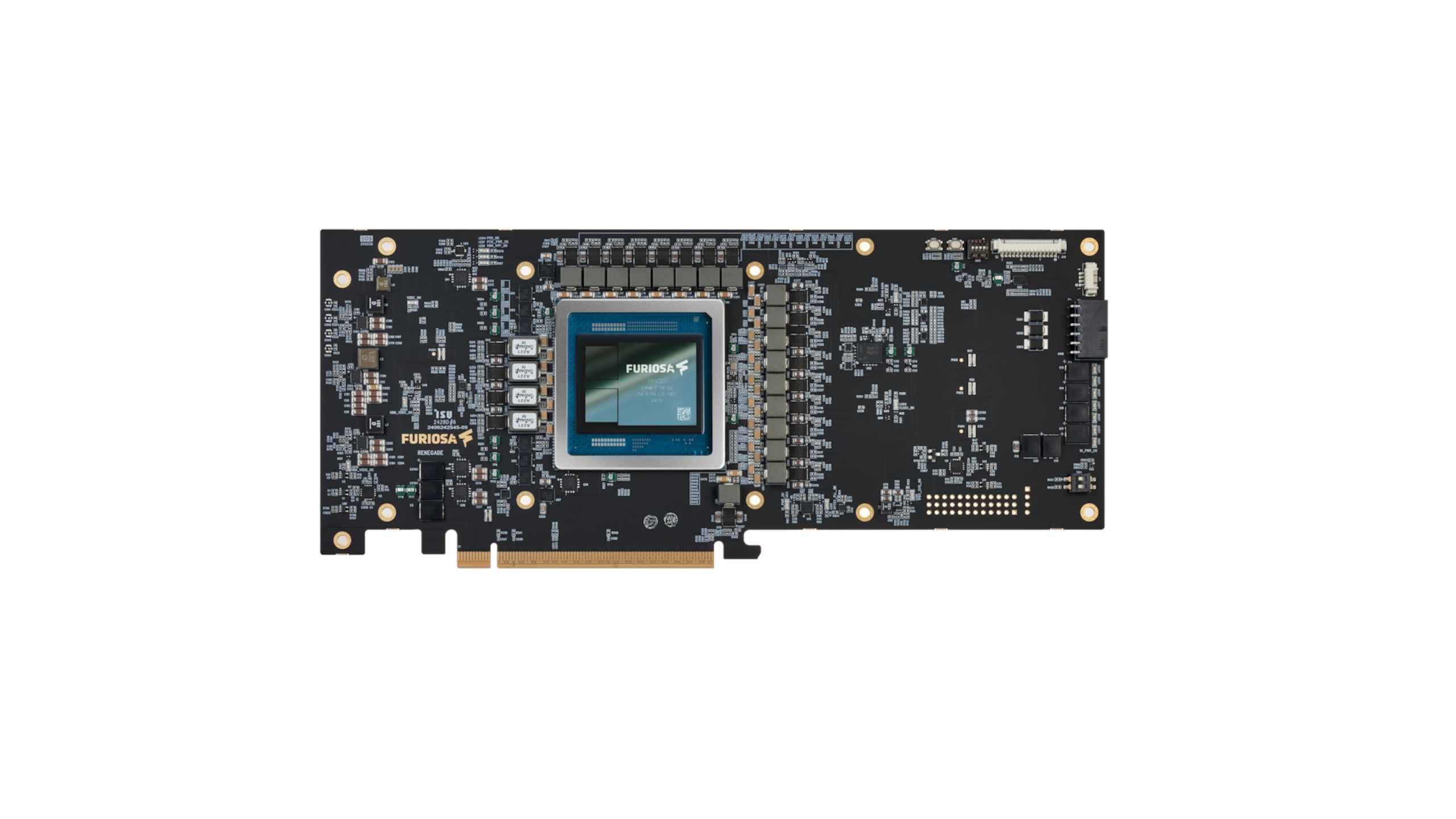- FuriosaAI and OpenAI ran a chatbot in Seoul demo using custom RNGD chips
- The Korean startup rejected Meta’s $800 million buyout offer earlier this year
- Demonstration showed enterprise AI models can run sustainably without GPUs
FuriosaAI and OpenAI recently held a joint demonstration in Seoul, South Korea, at the opening of OpenAI’s new office, showing the open-weight gpt-oss 120B model running on FuriosaAI’s hardware.
The demonstration (which you can watch below) featured a real-time chatbot powered by two of FuriosaAI’s RNGD accelerators (pronounced “Renegade”), the company’s flagship AI inference chip.
The model was run using MXFP4 precision, a format which lowers energy consumption while maintaining the accuracy needed for enterprise use.
FuriosaAI was the only hardware company invited to take part in the event and the setup demonstrated that large-scale open-source models can operate within the power budgets of standard data centers, without the heavy energy costs and infrastructure requirements often associated with GPUs.
Founded in 2017 by Chief Executive June Paik, FuriosaAI specializes in AI chip design and employs around 140 staff. More than 90 percent are developers, including engineers with experience at Google, Qualcomm, and Samsung.
The company’s RNGD flagship product was first presented at Hot Chips 2024.
It is a high-performance AI inference chip built on TSMC’s 5nm process, with dual HBM3 memory, and based on FuriosaAI’s Tensor Contraction Processor architecture.
The design improves efficiency by maximizing parallelism and reducing unnecessary computation.
FuriosaAI recently secured a $125 million Series C bridge funding round and signed a partnership with LG AI Research.
The company’s hardware has already been used in enterprise deployments and tested for efficiency and reliability.
The startup has also drawn interest from global technology firms. We reported back in April that Meta had made an $800 million (1.2 trillion won) offer for the firm.
FuriosaAI rejected the acquisition, despite it being roughly $300 million dollars over the startup’s estimated market value, because it disagreed with the planned direction post-acquisition.
Industry observers say the Seoul demonstration points to the increasing importance of specialized hardware as AI models continue to grow in size and complexity.
With energy and infrastructure costs continuing to soar, startups like FuriosaAI are pushing their chips as an affordable solution that fits within enterprise budgets.
.png)




